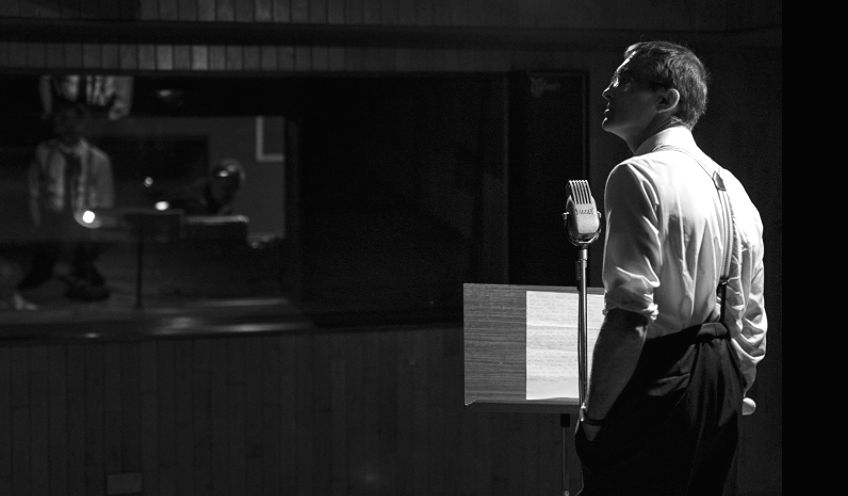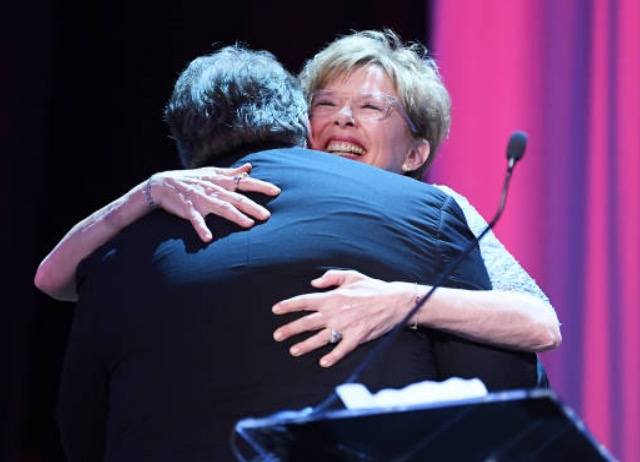All the foreign submission charts have been updated to reflect the speedy announcements of new titles. We're now up to 84 (last year's tally was an all time record of 85). Somehow I neglected to include Ireland on the submission charts. They've selected an "audacious" biopic about the singer Joe Heany called Song of Granite. The film uses both documentary footage and narrative sequences. It's in black and white and looks gorgeous in still photos

Submissions we've reviewed thus far here at TFE...
Submissions we've seen but haven't yet reviewed...
- Czech Republic's Ice Mother
- Egypt's Sheikh Jackson
- Finland's Tom of Finland
- France's 120 Beats per Minute
- Polan's Spoor
Submissions we're scheduled to see soon...
- Sweden's The Square
- Switzerland's The Divine Order
The rest of the list (thus far). We'll look out for opportunities to see them...
- Afghanistan A Letter to the President
- Albania's Daybreak
- Algeria's Road to Instanbul
- Armenia's Yeva
- Azerbaijan's Pomegranate Orchard
- Bangladesh's Khacha
- Bolivia's Dark Skull
- Bosnia & Herzegovina's Men Don't Cry
- Brazil's Bingo: King of the Mountain
- Bulgaria's Glory
- Cambodia's First They Killed My Father
- Canada's Hochelaga, Land of Souls
- Chile's A Fantastic Woman
- Colombia's Guilty Men
- Croatia's Quit Staring at My Plate
- Denmark's You Disappear
- Dominican Republic's Woodpeckers
- Ecuador's Alba
- Georgia's Scary Mother
- Germany's In the Fade
- Greece's Amerika Square
- Hong Kong's Mad World
- Iceland's Under the Tree
- India's Newton
- Indonesia's The Leftovers
- Iran's Breath
- Iraq's The Dark Wind
- Ireland's Song of Granite
- Israel's Foxtrot
- Italy's A Ciambra
- Japan's Her Love Boils Bathwater
- Kazakhstan's Road to Mother
- Kenya's Kati Kati
- Kosovo's Unwanted
- Kyrgyzstan's Centaur
- Laos's Dearest Sister
- Latvia's Chronicles of Melanie
- Lebanon's The Insult
- Lithuania's Frost
- Luxembourg's Barrage
- Mexico's Tempestad
- Morocco's Razzia
- Mozambique's The Train of Salt and Sugar
- Nepal's White Sun
- Netherland's Layla M
- New Zealand's One Thousand Ropes
- Pakistan's Saawan
- Palestine's Wajib
- Panama's Beyond Brotherhood
- Paraguay's Los Buscadores
- Peru's Rosa Chumber
- Philippines's Birdshot
- Portugal's Saint George
- Romania's The Fixer
- Russia's Loveless
- Serbia's Requiem for Mrs J
- Singapore's Pop Aye
- Slovakia's The Line
- Slovenia's The Miner
- South Africa's The Wound
- South Korea's A Taxi Driver
- Spain's Summer 1993
- Taiwan's Small Talk
- Thailand's By the Time It Gets Dark
- Tunisia's The Last of Us
- Turkey's Ayla: The Daughter of War
- Ukraine's Black Level
- United Kingdom's My Pure Land
- Uruguay's Another Story of the World
- Venezuela's El Inca
- Vietnam's Father and Son
Current predictions
 Monday, September 11, 2017 at 9:00PM
Monday, September 11, 2017 at 9:00PM 
 The foreign Oscar submissions keep on coming. Egypt will be submitting Sheikh Jackson, a potential crowd pleaser about an Islamic cleric undergoing an identity crisis when he flashes back to his Michael Jackson obsessed youth when Michael dies. Egypt has yet to be Oscar-nominated but who knows.
The foreign Oscar submissions keep on coming. Egypt will be submitting Sheikh Jackson, a potential crowd pleaser about an Islamic cleric undergoing an identity crisis when he flashes back to his Michael Jackson obsessed youth when Michael dies. Egypt has yet to be Oscar-nominated but who knows.






